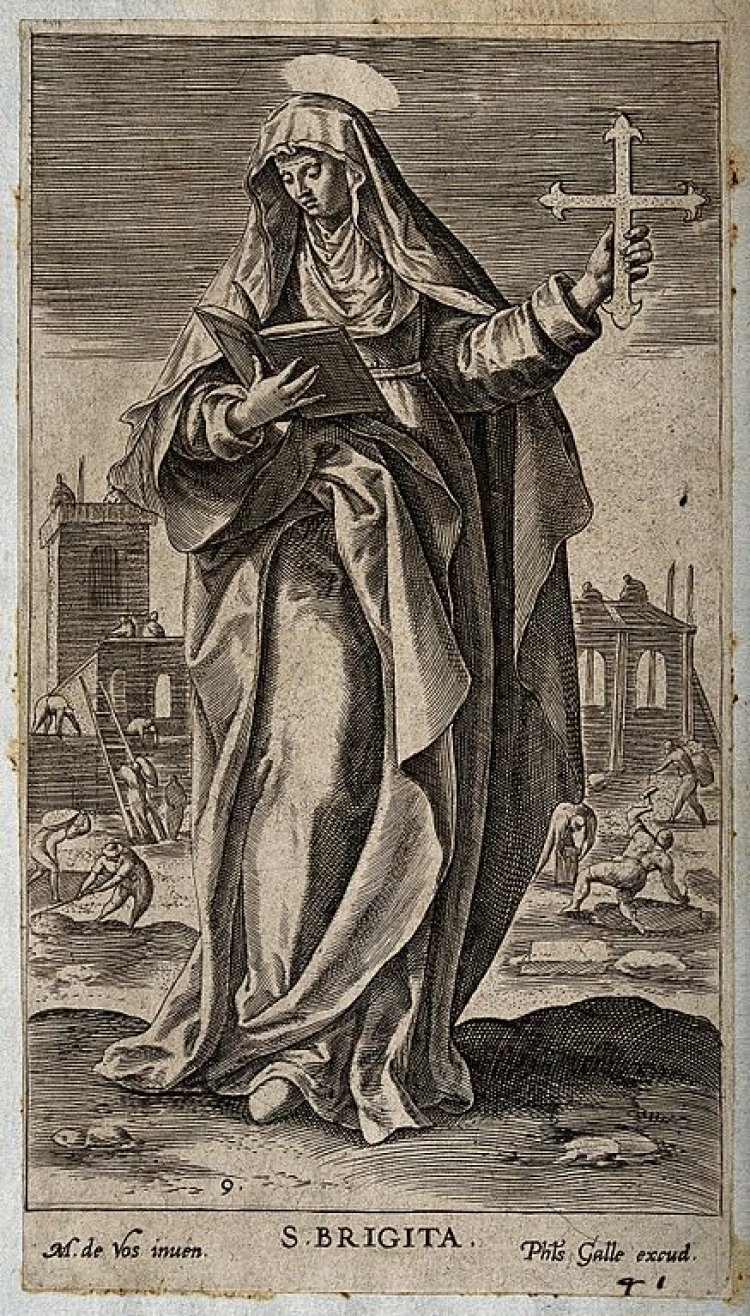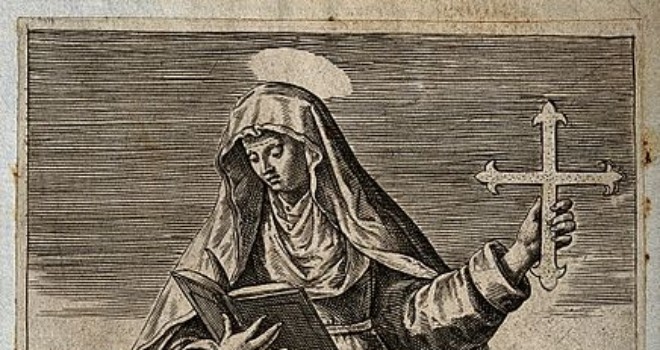St. Bridget of Sweden
Bridget was born in 1303, the daughter of a governor. Throughout her youth, she often heard the voices of Jesus and Mary. She was particularly sensitive to the sufferings of the crucified Lord and for most of her life meditated on His Passion and Death. She married young, betrothed to a Swedish prince when she […]



Bridget was born in 1303, the daughter of a governor. Throughout her youth, she often heard the voices of Jesus and Mary. She was particularly sensitive to the sufferings of the crucified Lord and for most of her life meditated on His Passion and Death.
She married young, betrothed to a Swedish prince when she was an infant. Their marriage was happy and fruitful and they raised eight children, one of whom became a saint like her mother — Catherine of Sweden.
After her husband’s death, Bridget led an austere and celibate life. She received many prophecies from the Lord which led her to give counsel and stern warnings to several popes and kings about their worldly lives. Many saints visited her in visions providing her with guidance and revelation about the future. Despite her condemnations of the actions of both spiritual and state authorities, her pleading to return the papacy to Rome went unheeded.
She founded a monastery for women and men in which the women controlled the temporal matters of the order, while the men commanded the spiritual matters. This order became known as the Brigittines.
In a message from the pope to Mother Tekla Famiglietti, abbess general of the Order of the Most Holy Saviour of St. Bridget, on the occasion of the 700th anniversary of the birth of the Swedish saint, the Holy Father expressed his gratitude to the religious for their “significant apostolic work in the service of unity among Christians, especially in Europe, following the footsteps of the saint from Sweden.”
John Paul II recalled that St. Bridget “was a master in accepting the Cross as a central experience of the faith; she was an exemplary disciple of the Church, professing complete Catholicism; she was a model of the contemplative and active life and a tireless apostle in the search for unity among Christians. She also had the gift of prophetic intuition when reading the history of the Gospel and the Gospel in history.”
In a time when humanity struggles to fulfill the moral good and eradicate the moral evils of the world, the words of St. Bridget echo through time, speaking to us from the visions from Christ that she shared. From one disturbing conversation she had with Him in 1372, she revealed these words:
“O my enemies, why do you so boldly commit such sins and do other things contrary to my will? Why have you neglected My Passion? Why do you not attend in your hearts to how I ‘stood’ naked on the cross and cried out, full of wounds and clothed in blood?
“But your eyes and heart forget and neglect all these things. And so you behave like prostitutes, who love the delight of the flesh, but not of its offspring. For when they feel a living infant in their womb, at once they procure an abortion so that without losing their fleshly pleasure, they may always engage in their foul intercourse.”
St. Bridget died before seeing the Holy See return from Avignon to Rome, but she died near the tomb of Peter on July 23, 1373.
Other Saints We Remember Today
- Saints Sergius and Bacchus, Marcellus and Apuleius, (3rd Century), Martyrs
- Our Lady of Good Remedy
- St. Pelagia (5th Century), Penitent
image: Saint Bridget of Sweden. Line engraving after M. de Vos. Wellcome / See page for author, CC BY 4.0, via Wikimedia Commons














